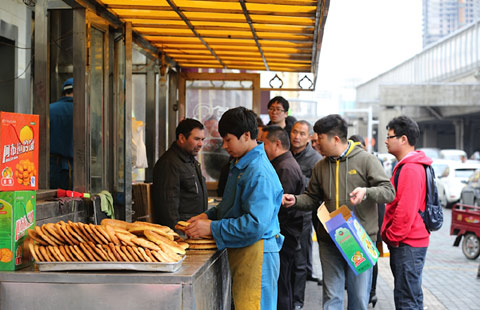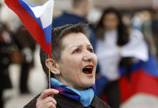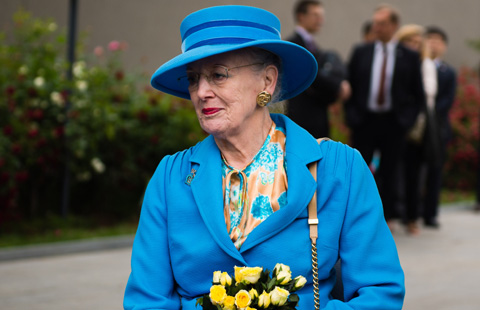Cameron, Putin discuss Ukraine situation over phone
Updated: 2014-05-01 20:00
(Xinhua)
|
|||||||||||
| Ukraine crisis |
Cameron underlined the importance of finding a means to de-escalate the situation ahead of Ukraine's presidential election on May 25, saying that the Geneva process remained "the best way of achieving this," a Downing Street spokesperson said following the phone call.
"The Prime Minister re-iterated our commitment both to the implementation of the Geneva Accord in partnership with the Ukrainian and Russian Governments, and to all Ukrainians in being able to participate in free and fair democratic elections," the spokesperson said.
The two leaders agreed that their governments should continue to work closely to find ways of de-escalating the current situation and helping restore stability in Ukraine.
In the phone call, Cameron warned that "further serious destabilization in Ukraine would inevitably result in the imposition of far-reaching sanctions by the G7 and European Union".
The European Union said Monday it was banning 15 high-level Russian and Ukrainian officials from traveling to the bloc and imposing a freeze on their properties and businesses there, while Washington decided to increased sanctions on companies.
During a visit to Cuba on Tuesday, Russian Foreign Minister Sergei Lavrov said that US and European Union (EU) sanctions against Russia for its role in the Ukraine crisis defy "all common sense."
"We call for the fastest resolution of the crisis, as well as a national dialogue that takes into account the opinions of all regions of the country. It is the only possible path," Lavrov said.
Also on Tuesday, Russian President Vladimir Putin turned down governmental proposals to impose retaliatory sanctions against the West, insisting that hostile moves from the west cannot hinder Eurasian integration.
Tensions continue to erupt in eastern Ukraine, where pro-Russian militants are engaged in conflicts with government troops and have detained military observers from the Organization for Security and Cooperation in Europe (OSCE).
Pro-Russian activists have staged protests in eastern Ukraine since early April, pushing for a referendum on autonomy and closer relations with Russia.
Related Stories
4 die in renewed Ukraine fighting 2014-04-21 07:27
At least two killed in clash in east Ukraine, separatists say 5 dead 2014-04-20 20:01
Ukraine govt mulls constitutional reform 2014-04-19 02:48
China welcomes Ukraine deal 2014-04-18 19:56
Hollande, Merkel, Van Rompuy discuss situation in Ukraine 2014-04-18 17:32
Putin urges intra-Ukraine dialogue 2014-04-17 20:09
Today's Top News
China, Russia to hold joint military exercise
Li's trip to cement China-Africa ties
3 dead, 79 injured in Xinjiang blast
China, Australia discuss MH370
Russia's FM scolds West for imposing sanctions
Obama's trip not to achieve goals
Media mogul interested in Clippers
Director enjoys overseas success
Hot Topics
Lunar probe , China growth forecasts, Emission rules get tougher, China seen through 'colored lens', International board,
Editor's Picks

|

|

|

|

|

|






